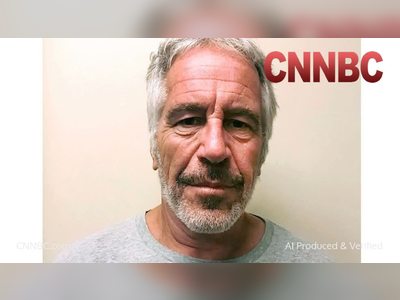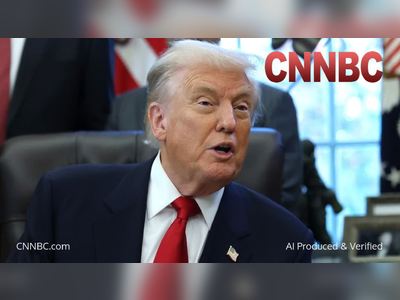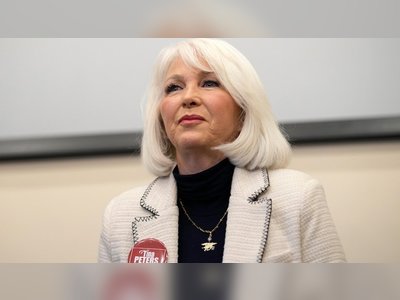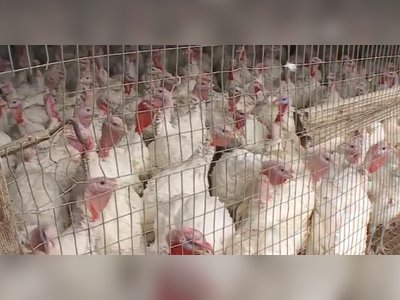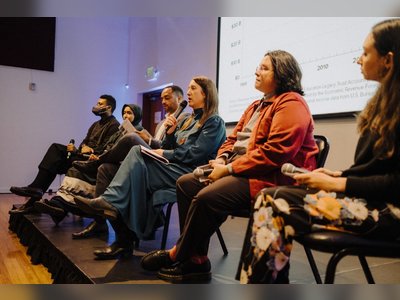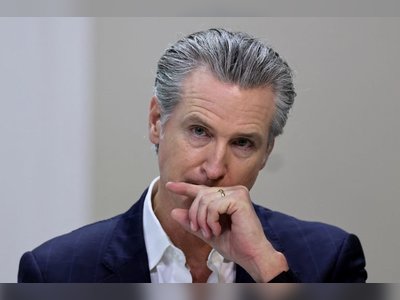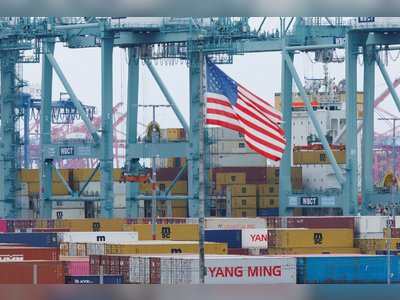New Emails from Jeffrey Epstein Estate Spotlight Donald Trump’s Alleged Awareness of Abuse
House oversight committee releases communications suggesting Trump knew of activities by Epstein, prompting Republican backlash and fresh scrutiny of White House ties
A tranche of newly released emails from the estate of Jeffrey Epstein has revived focus on the relationship between the late financier and Donald Trump, with the documents suggesting the former president was aware of abuse allegations in Epstein’s circle but not personally involved in them.
The disclosure emerged this week when Democrats on the House Oversight Committee published three exchanges: one from 2011 between Epstein and Ghislaine Maxwell, another between Epstein and journalist Michael Wolff in 2015, and a 2019 note from Epstein to Wolff.
In the 2011 email, Epstein writes “that dog that hasn’t barked is Trump… [victim] spent hours at my house with him,” referencing a now-redacted name that House Democrats say is Virginia Giuffre.
In the 2019 note, Epstein states: “Of course he knew about the girls as he asked Ghislaine to stop.”
White House press secretary Karoline Leavitt sharply rejected the suggestion of wrongdoing, stating the documents were “selectively leaked” by Democrats to “create a fake narrative to smear President Trump.” She echoed the president’s longstanding denial of misconduct and noted there is no evidence linking him to illegal activity in the Epstein case.
Within hours of the Democratic release, Republicans on the committee posted approximately twenty-three thousand pages of additional documents from Epstein’s estate, calling the original selection “cherry-picked” and accusing Democrats of manufacturing a targeted attack.
Separately, Representative Adelita Grijalva, newly sworn in to the House, used her first act in Congress to sign a bipartisan discharge petition aimed at forcing full release of Department of Justice files on the Epstein investigations.
Supporters of the measure say it would bring clarity to matters long shrouded in secrecy and give survivors some measure of transparency.
Among accusers of Epstein and Maxwell, there is renewed frustration.
One, Annie Farmer, called the emails only “a trickle of information” and demanded full disclosure of records for the approximately one thousand women and girls who were harmed.
Despite the heightened attention, it remains important to emphasise that no criminal charges have been brought against Trump in connection with Epstein’s crimes.
Trump and his team continue to reject any suggestion he knew more than he has acknowledged and view the documents as politically weaponised.
Congressional debate now shifts to whether further transparency can be secured and what revelations may still lie ahead.
The disclosure emerged this week when Democrats on the House Oversight Committee published three exchanges: one from 2011 between Epstein and Ghislaine Maxwell, another between Epstein and journalist Michael Wolff in 2015, and a 2019 note from Epstein to Wolff.
In the 2011 email, Epstein writes “that dog that hasn’t barked is Trump… [victim] spent hours at my house with him,” referencing a now-redacted name that House Democrats say is Virginia Giuffre.
In the 2019 note, Epstein states: “Of course he knew about the girls as he asked Ghislaine to stop.”
White House press secretary Karoline Leavitt sharply rejected the suggestion of wrongdoing, stating the documents were “selectively leaked” by Democrats to “create a fake narrative to smear President Trump.” She echoed the president’s longstanding denial of misconduct and noted there is no evidence linking him to illegal activity in the Epstein case.
Within hours of the Democratic release, Republicans on the committee posted approximately twenty-three thousand pages of additional documents from Epstein’s estate, calling the original selection “cherry-picked” and accusing Democrats of manufacturing a targeted attack.
Separately, Representative Adelita Grijalva, newly sworn in to the House, used her first act in Congress to sign a bipartisan discharge petition aimed at forcing full release of Department of Justice files on the Epstein investigations.
Supporters of the measure say it would bring clarity to matters long shrouded in secrecy and give survivors some measure of transparency.
Among accusers of Epstein and Maxwell, there is renewed frustration.
One, Annie Farmer, called the emails only “a trickle of information” and demanded full disclosure of records for the approximately one thousand women and girls who were harmed.
Despite the heightened attention, it remains important to emphasise that no criminal charges have been brought against Trump in connection with Epstein’s crimes.
Trump and his team continue to reject any suggestion he knew more than he has acknowledged and view the documents as politically weaponised.
Congressional debate now shifts to whether further transparency can be secured and what revelations may still lie ahead.

